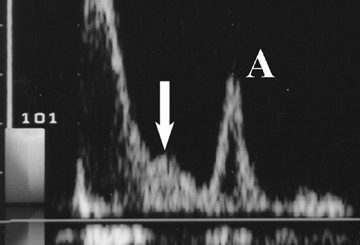McConnell’s sign seen in
Contents
- 1 McConnell’s sign seen in
- 2 What is McConnell’s sign?
- 3 Most common symptom of a Pulmonary Embolism
- 4 What is the “gold” standard of reference for confirming or refuting a diagnosis of Pulmonary Embolism?
- 5 Most widely used modality for diagnosis of pulmonary embolism
- 6 Most common abnormal findings in ECG in Pulmonary Embolism?
- 7 What is the Mechanism of McConnell’s sign in Pulmonary Embolism?
- 8 What is Reverse McConnell’s sign?
- 9 What is the sensitivity and specificity of McConnell’s sign?
- 10 McConnell’s sign presence in cases other than Acute Pulmonary Embolism
- 11 What are the electrocardiographic changes indicative of RV strain?
McConnell’s sign seen in
[A] HOCM
[B] Mitral Valve Prolapse
[C] Pulmonary Embolism
[D] Cardiac Tamponade
What is McConnell’s sign?
McConnell’s sign is defined as right ventricular free wall akinesis with sparing of the apex.
Typically this looks as if the apex of the RV is a trampoline bouncing up and down while the rest of the RV remains still. This finding is not sensitive, but in a small study was specific for an acute PE.
Most common symptom of a Pulmonary Embolism
[A] Chest Pain
[B] Dyspnea
[C] Giddiness
[D] Loss of Conciousness
What is the “gold” standard of reference for confirming or refuting a diagnosis of Pulmonary Embolism?
[A] CT Scan
[B] MRI
[C] Ventilation-perfusion scan
[D] Pulmonary angiography
- Pulmonary angiography is the “gold” standard of reference for confirming or refuting a diagnosis of PE
- Spiral CT with contrast is the most widely used modality for diagnosis of pulmonary embolism
Most widely used modality for diagnosis of pulmonary embolism
[A] CT Scan
[B] MRI
[C] Ventilation-perfusion scan
[D] Pulmonary angiography
Most common abnormal findings in ECG in Pulmonary Embolism?
[A] Sinus Tachycardia
[B] PSVT
[C] Atrial Fibrillation
[D] S1Q3T3
What is the Mechanism of McConnell’s sign in Pulmonary Embolism?
Supported by Cardiac magnetic resonance
McConnell’s sign is proposed to be caused by
- Substantial preload reduction
- Reflex hyperadrenergic up-regulation
- Markedly augmented left ventricle septal intramyocardial deformations, such that tethered right ventricle insertion point fibers are acted upon via the hyperdynamic left ventricle apex with paradoxical right ventricle apical passive deformation
What is Reverse McConnell’s sign?
Hypokinetic right ventricular apex with hyperkinesis of the RV free wall, (reverse McConnell’s sign) seen in rare cases of * Acute Pulmonary Embolism*
What is the sensitivity and specificity of McConnell’s sign?
- Sensitivity – 22%
- High specificity – 97%
McConnell’s sign presence in cases other than Acute Pulmonary Embolism
McConnell’s sign can be seen in some cases -right ventricular ischemia without acute PE
What are the electrocardiographic changes indicative of RV strain?
Electrocardiographic changes indicative of RV strain include
- Precordial T-wave inversion (TWI)
- QR pattern in lead V1
- S1Q3T3 pattern
- Incomplete or complete RBBB





